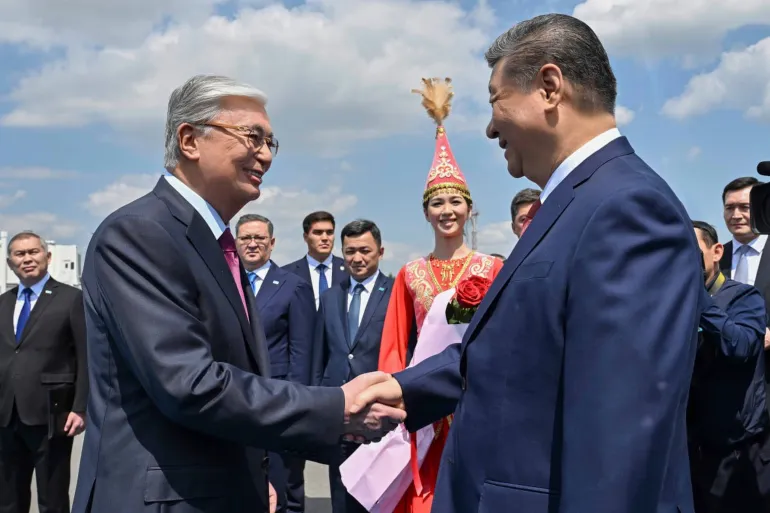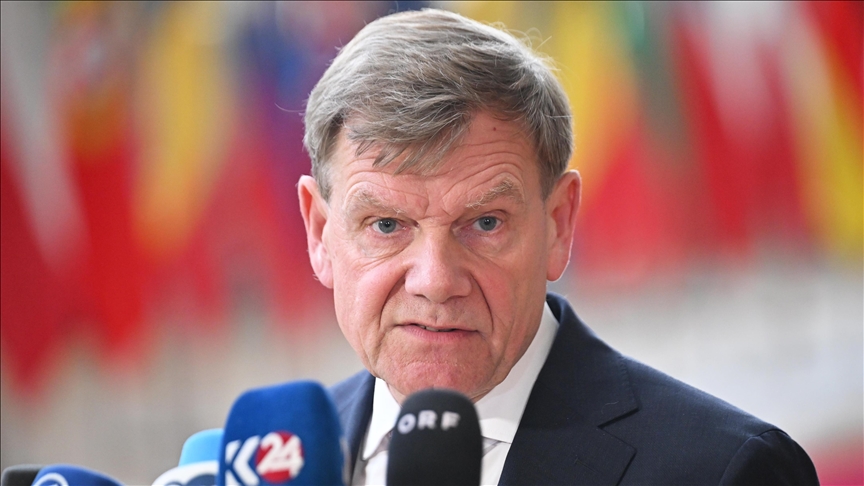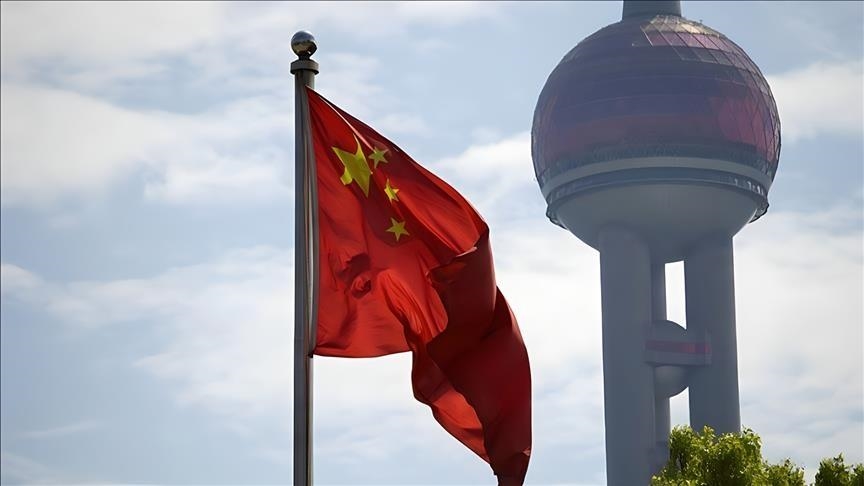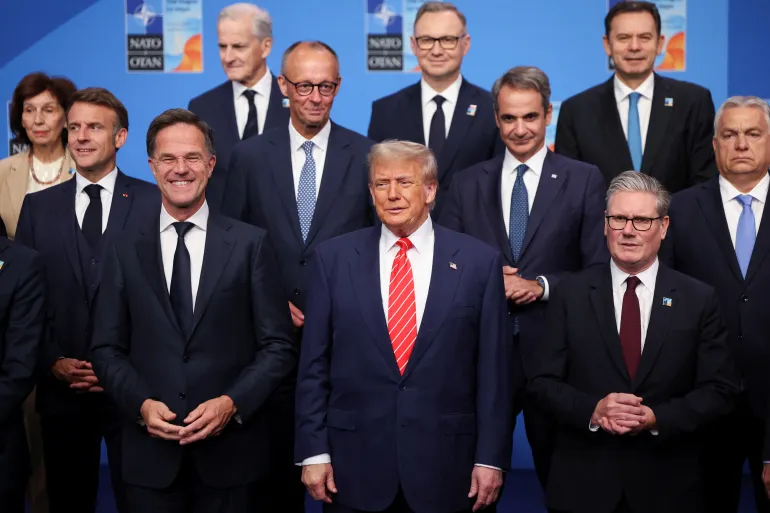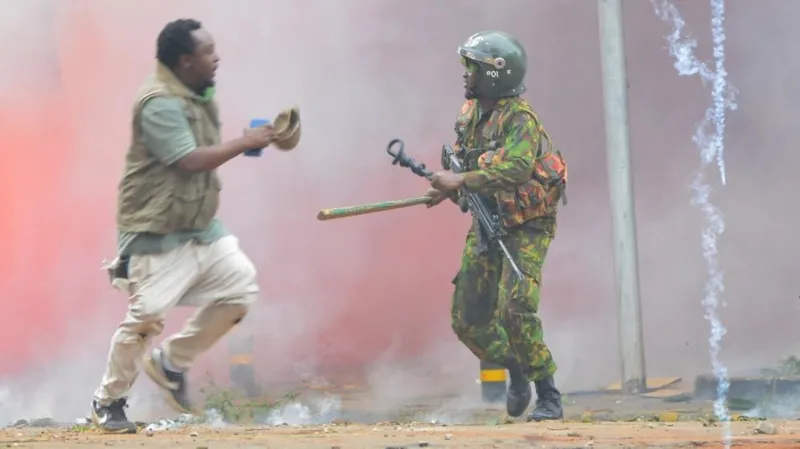Chinese President Xi Jinping reached Kazakhstan on Monday to attend the second China–Central Asia Summit, a high-stakes diplomatic gathering aimed at deepening Beijing’s economic and strategic ties with the region.
The summit, which will be held on Tuesday in the Kazakh capital Astana, comes at a time when China is intensifying its outreach to Central Asian countries amid shifting global power alignments — and mounting tensions in neighbouring Iran, which is roiled in an escalating conflict with Israel.
The summit will bring together the heads of state from all five Central Asian nations — Kazakhstan, Kyrgyzstan, Tajikistan, Turkmenistan and Uzbekistan — along with Xi.
The Astana summit also carries symbolic weight: it is the first time that the five Central Asian nations are holding a summit in the region with the leader of another country.
So, what is the importance of the China-Central Asia Summit? And is China battling both the United States and Russia for influence in the region?
What’s on Xi’s agenda in Astana?
On Monday, Xi was greeted by Kazakh President Kassym-Jomart Tokayev and other senior officials at the airport in Astana. The Astana summit follows the inaugural May 2023 China–Central Asia Summit, which was held in Xi’an, the capital city of China’s Shaanxi province.
Xi is expected to be in Astana from June 16 to 18 and is scheduled to hold bilateral meetings with Kazakhstan’s leaders on Monday before the summit on June 17.
At the summit, he is expected to deliver a keynote speech and “exchange views on the achievements of the China-Central Asia mechanism, mutually beneficial cooperation under the framework, and international and regional hotspot issues,” said a Chinese Foreign Ministry spokesperson.
The office of Kazakhstan’s president noted that both countries are “set to further strengthen bilateral ties” and Xi will also chair “high-level talks with President [Tokayev] focused on deepening the comprehensive strategic partnership”.
Tokayev, who has been in office since 2019, is a fluent Mandarin speaker and previously served as a diplomat in China.
Zhao Long, a senior research fellow at the Shanghai Institutes for International Studies (SIIS), told Al Jazeera that Central Asian countries see their partnership with China as a deep, multifaceted cooperation grounded in shared strategic and pragmatic interests.
“The alignment with China helps Central Asian states enhance their regional stability, pursue economic modernisation, and diversify their diplomatic portfolios,” said Zhao. Where Central Asia has abundant energy resources, he said, China offers vast markets, advanced technology, and infrastructure expertise.
Last Friday, Lin Jian, a Chinese Foreign Ministry spokesperson, told a news briefing that establishing “the China-Central Asia mechanism was a unanimous decision among China and the five Central Asian countries, which dovetails with the region’s common desire to maintain stability and pursue high-quality development”.
Since China first formalised and chaired the China-Central Asia Summit in May 2023, Lin said, “China’s relations with Central Asian countries have entered a new era … injecting fresh impetus into regional development and delivering tangibly for the peoples of all six countries.”
“We believe through this summit, China and five Central Asian countries will further consolidate the foundation of mutual trust,” Lin added.
“During the summit, President Xi will also meet with these leaders and lay out the top-level plan for China’s relations with [the] five Central Asian countries,” said the spokesperson.
SIIS’s Zhao said Xi’s attendance at the second summit sends a clear message: “China places high strategic importance on Central Asia.”
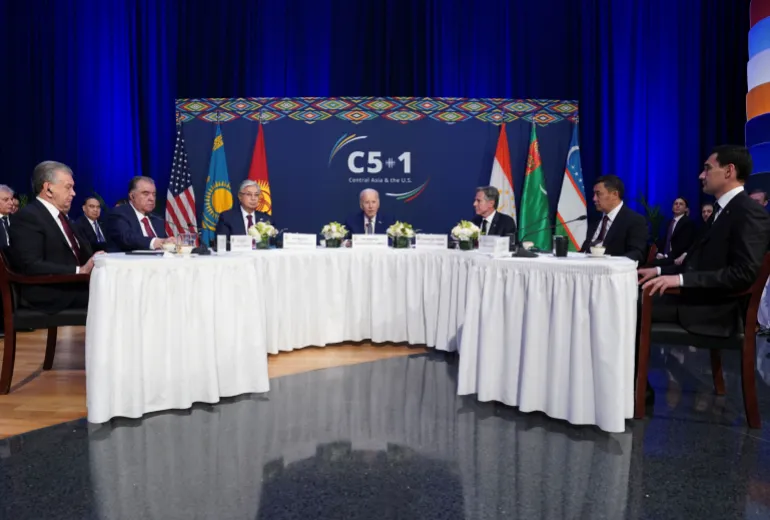
What’s ‘C5+1’ – and is China racing the US for influence?
Experts are dubbing the China-Central Asia Summit as a C5+1 framework, because of the five regional nations involved.
The United States first initiated the concept of such a summit with all five Central Asian nations in 2015, under then-US President Barack Obama. But at the time, the conclave was held at the level of foreign ministers. Then-US Secretary of State John Kerry led the first meeting in September 2015 on the sidelines of the United Nations General Assembly (UNGA) in New York.
In January 2022, Indian Prime Minister Narendra Modi held a virtual summit with the five Central Asian state heads, and then in June 2025, he invited them for a follow-up conclave in India.
Meanwhile, in 2023, Xi hosted the leaders in Xi’an. Four months later, then-US President Joe Biden hosted the C5 state heads on the sidelines of the UNGA in New York. It was the first time a US president met with Central Asian heads of state under this framework.
But current US President Donald Trump’s tariff policies could upset that outreach from Washington. Kyrgyzstan, Tajikistan, Turkmenistan and Uzbekistan have all been tariffed at 10 percent.
Trump initially imposed an even higher 27 percent tariff on imports from Kazakhstan, the region’s largest economy, though as with all other countries, the US president has paused these rates, limiting tariffs to a flat 10 percent for now.
China has cited these tariff rates to project itself as a more reliable partner to Central Asia than the US. At the meeting with the foreign ministers of the region in April, Chinese Foreign Minister Wang Yi criticised unilateralism, trade protectionism, and “the trend of anti-globalisation [that] has severely impacted the free trade system”.
The US, Wang said, was “undermining the rule-based multilateral trading system, and destabilising the global economy”.
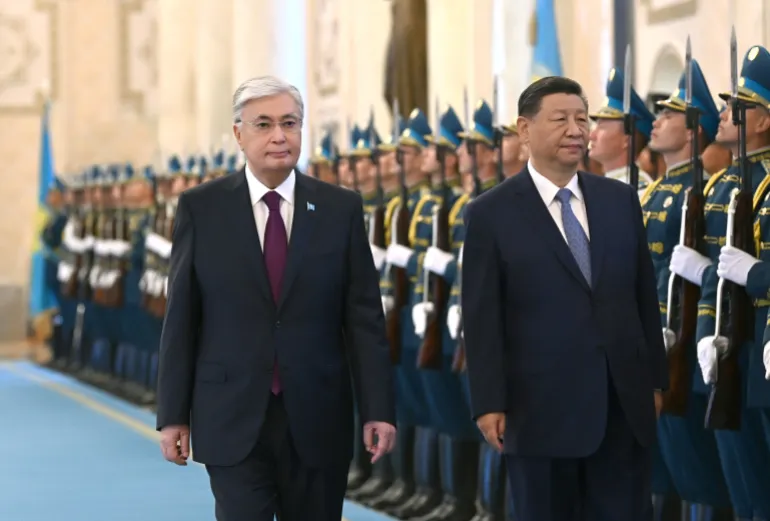
Why does Central Asia matter to China?
The region, rich in uranium, oil, and rare earth metals, has become increasingly important to China as a key corridor for trade with Europe. Subsequently, China has increased its engagement with Central Asian countries.
Xi, who has curtailed his foreign visits since the COVID-19 pandemic, is visiting Kazakhstan for the third time since 2020. He visited in 2022, and then again in 2024.
Central Asia is also a critical part of Xi’s Belt and Road Initiative (BRI) — a network of highways, railroads and ports connecting Asia, Africa, Europe and Latin America — as a gateway to Europe.
Experts expect the BRI to figure prominently at the summit in Astana on Tuesday, with additional emphasis on collaboration in energy and sustainable development.
A planned $8bn railway connecting China’s Xinjiang region to Uzbekistan through Kyrgyzstan is likely to be on the agenda, the SIIS’s Zhao said. Construction on the project is scheduled to begin in July. Expected to be completed by 2030, the railway route will provide China with more direct access to Central Asia and reduce the three countries’ reliance on Russia’s transport infrastructure.
Additionally, Zhao said, the summit may feature agreements on reducing tariffs, streamlining customs procedures, and lowering non-tariff barriers to boost bilateral trade volumes.
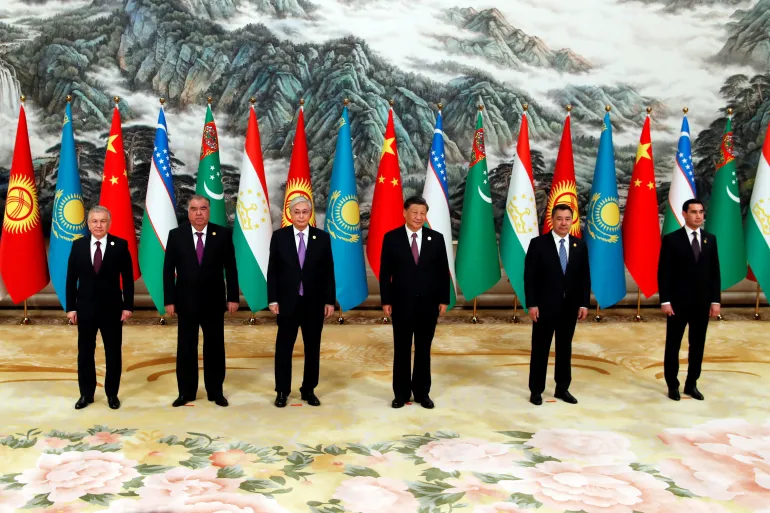
How much does Central Asia depend on China?
China is today the top trading partner of each of the five Central Asian republics.
Kazakhstan imported goods worth $18.7bn from China and exported goods worth $15bn in 2023 — making up 30 percent of its total imports and 16 percent of exports.
Tajikistan imported goods worth $3.68bn from China and exported goods worth $250m in 2023 — making up 56 percent of its total imports and 16 percent of exports.
Kyrgyzstan imported goods worth $3.68bn and exported goods worth $887m in 2023 from China — constituting 29 percent of its total imports and 26 percent of exports.
Uzbekistan imported goods worth $12.7bn and exported goods worth $1.82bn in 2023 from the world’s second-largest economy — representing 32 percent of its total imports and 6 percent of exports.
Turkmenistan imported goods worth $957m and exported goods worth $9.63bn in 2023 from China — or 20 percent of its total imports and 62 percent of exports.
China is also ramping up its investments in the region. It has committed to an estimated $26bn in investments in Kazakhstan, for instance.
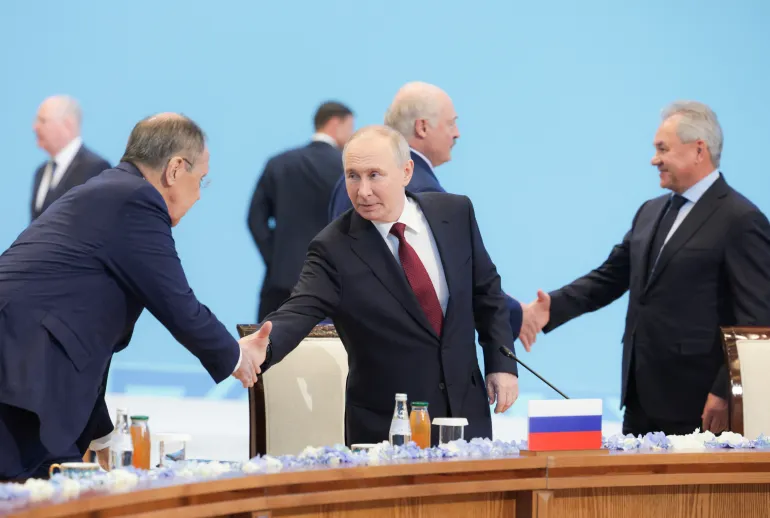
Is China replacing Russia in Central Asia?
It’s complicated.
Formerly parts of the Soviet Union, the five Central Asian republics have long belonged in Russia’s strategic sphere of influence. Millions of people from the five republics live and work in Russia, and since 2023, Moscow has become a supplier of natural gas to Kazakhstan and Uzbekistan, which have faced energy shortages — even though Central Asia was historically a supplier of energy to Russia.
But though Russia remains a major economic force in the region, China has overtaken it as the largest trading partner of Central Asian republics over the past three years — a period that has coincided with Russia’s war on Ukraine. Some of that increased trade, in fact, is believed to be the outcome of China using Central Asia as a conduit for exports to Russia of goods that face Western sanctions.
Still, there are ways in which Russia remains the region’s preeminent outside ally. Kazakhstan, Kyrgyzstan and Tajikistan — three of the region’s five nations — are part of the Collective Security Treaty Organisation (CSTO) — along with Russia, Armenia and Belarus. Like NATO, this bloc offers collective security guarantees to members. In effect, Kazakhstan, Kyrgyzstan and Tajikistan have the cover of Russia’s protection if they are attacked by another nation — something that China does not offer.

